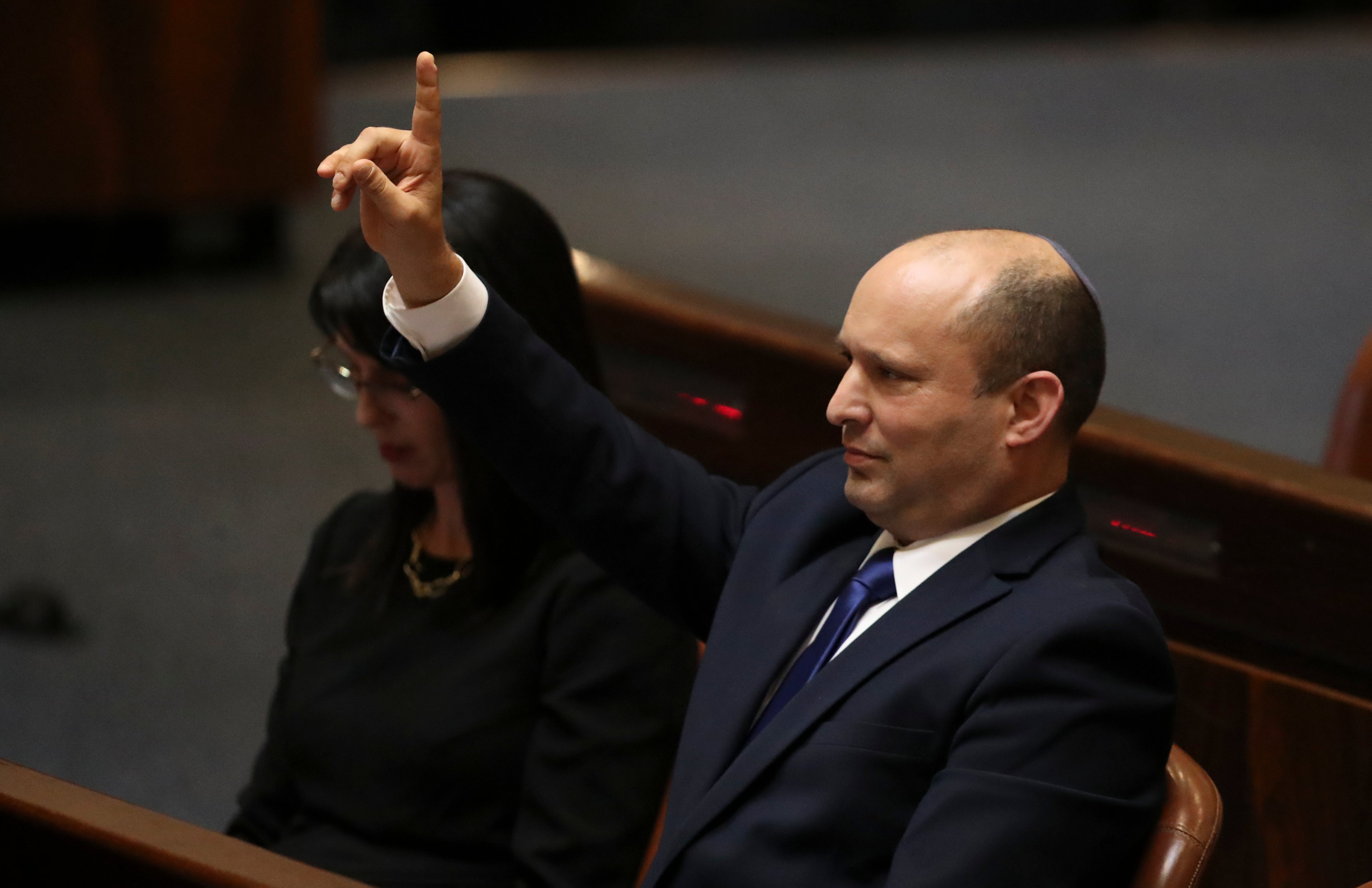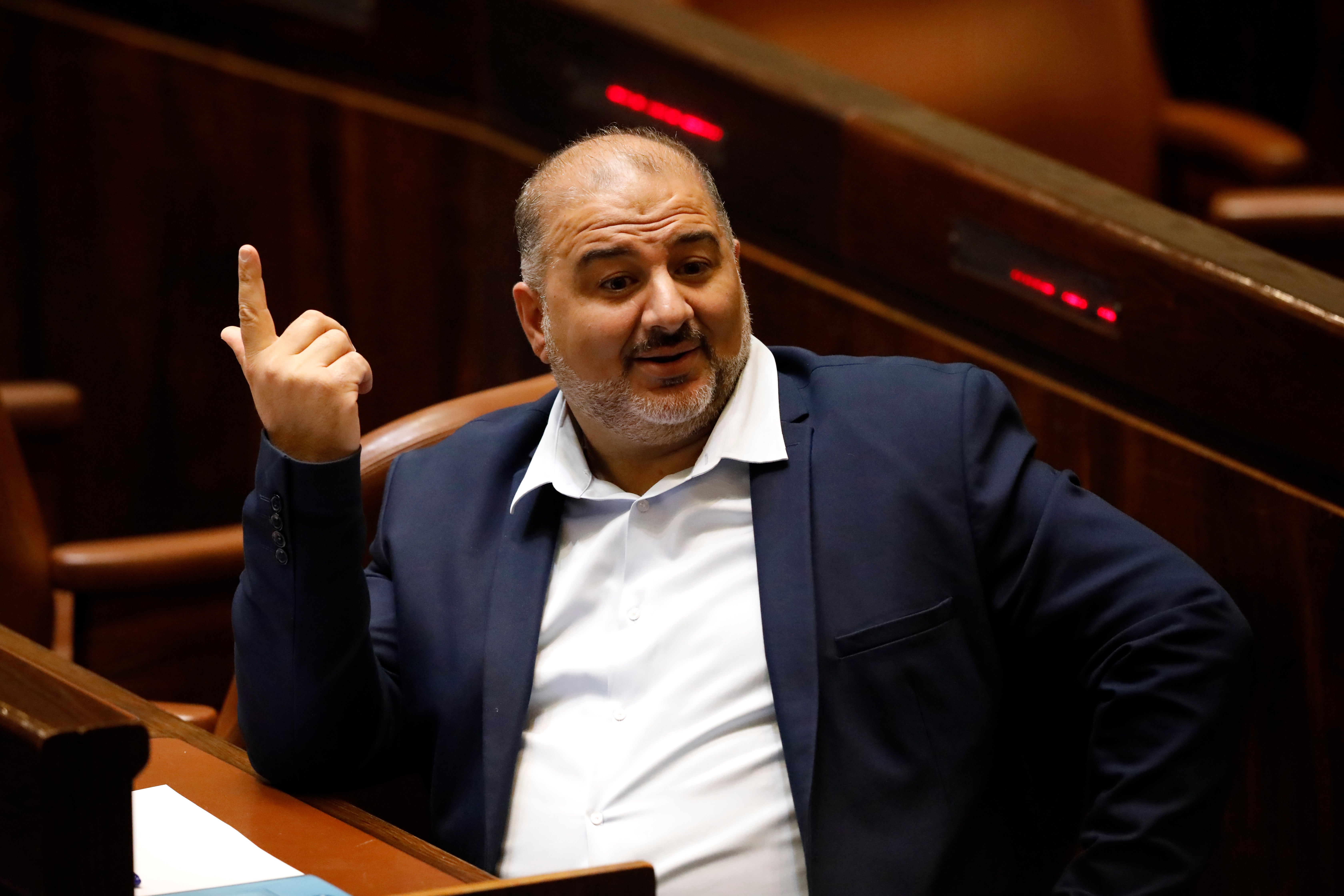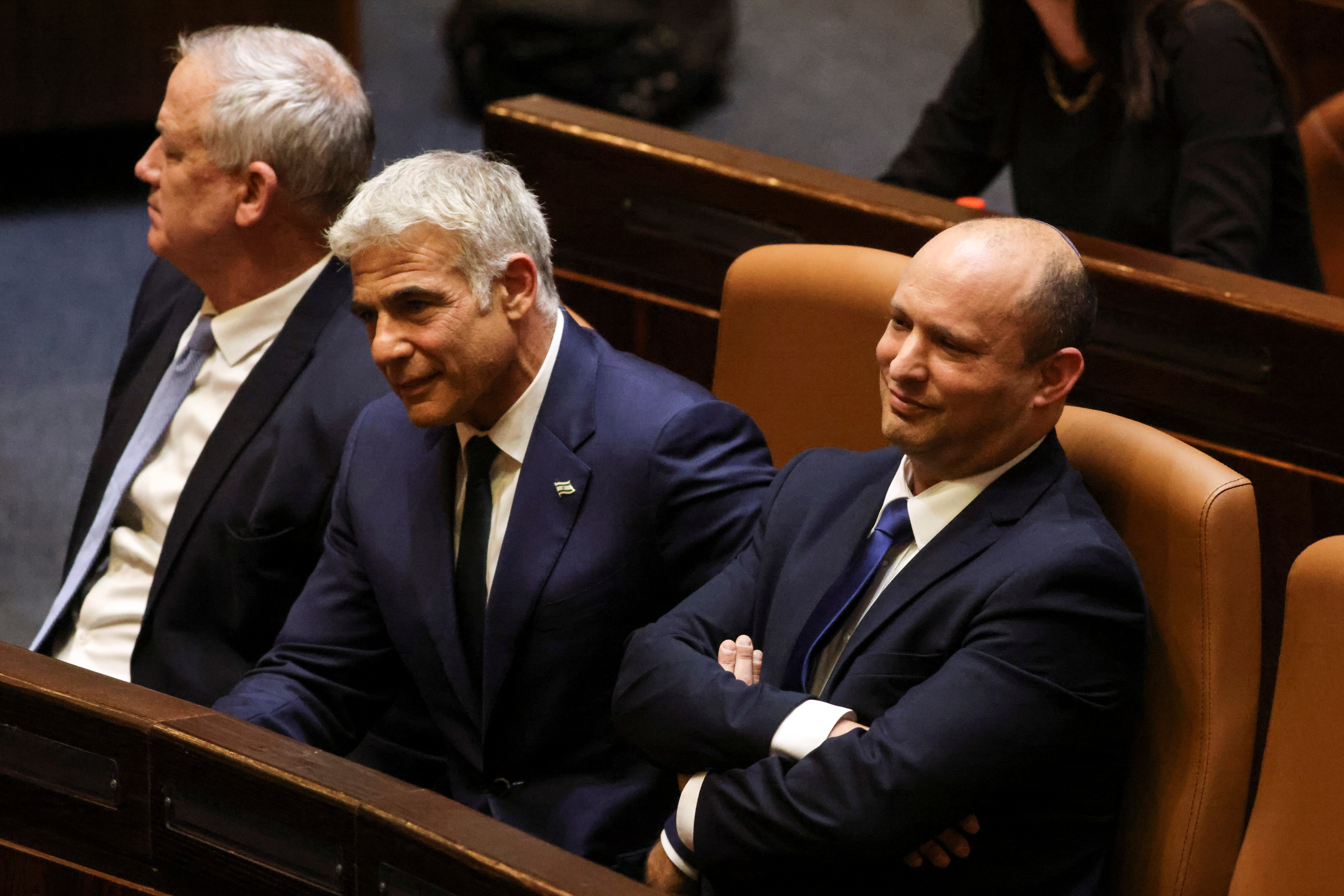What to expect from Israel’s new coalition government
Knesset narrowly approves new unity leadership under Naftali Bennett, ousting Benjamin Netanyahu after 12 years in power, but what does the collective stand for?

Israel’s parliament, the Knesset, voted on Sunday in favour of installing a new coalition government to bring an end to Benjamin Netanyahu’s 12-year run as the country’s prime minister, his second stint in the role.
The motion scraped by with a majority of 60 to 59 but cheers reportedly erupted in the chamber as the collective, fronted by ex-Netanyahu chief of staff Naftali Bennett, ascended to power.
Mr Bennett, leader of the right-wing Yamin Party, helms a fragile coalition that was unexpectedly formed earlier this month in agreement with Yair Lapid of the new centrist opposition party Yesh Atid.
The pair will share the premiership on a rotating basis, with Mr Bennett serving as prime minister first before being succeeded by Mr Lapid after two years - assuming the alliance between the former software entrepreneur and television presenter holds strong in the interim.
Mr Lapid will for now serve as foreign minister.
Their unity government consists of eight parties in total from across the political spectrum, none of whom have much in common beyond the shared (and now accomplished) goal of ousting Mr Netanyahu.
They represent a wide range of interests but may struggle to find further areas of agreement.
The grouping brings together hard-liners previously allied with the ousted prime minister who support Jewish settlements in the West Bank as well as centre-left parties who back the creation of a Palestinian state in the region and even the United Arab List (or Ra’am), the first Islamist party ever to be part of a governing coalition in Israel.

The weekend’s developments were endorsed by US president Joe Biden, the White House reiterating in a statement that: “Israel has no better friend than the United States” and that Washington “remains unwavering in its support for Israel’s security.”
Boris Johnson and Narendra Modi of India were also quick to tweet their congratulations.
In Tel Aviv, thousands took to the streets to welcome the result, after four inconclusive elections in two years. “I am here celebrating the end of an era in Israel,” one reveller in Rabin Square told Reuters.
Setting out his domestic concerns in an address to the Knesset on Sunday, Mr Bennett said: “Israel will not allow Iran to arm itself with nuclear weapons. Israel will not be a party to the agreement and will continue to preserve full freedom of action.”
On the recent 11-day outbreak of fighting in Gaza, he said: “I hope the ceasefire in the south is maintained. But if Hamas again chooses the path of violence against Israeli civilians, it will encounter a wall of iron.”
Neither position signalled a significant break with Mr Netanyahu’s hawkish and uncompromising stance on those long-running regional issues, Mr Bennett sharing many of his former boss’s nationalist attitudes.
It will be Mr Lapid’s place to seek to moderate and temper those positions, with compromise expected to be key to the survival of their patchwork coalition. Without keeping all eight member parties at least reasonably content, the new government risks reopening the door to Mr Netanyahu, who could make a natural pitch to return as Israel’s dependable strongman, promising order amid chaos.
Mr Bennett, for his part, is opposed to Palestinian independence and strongly supports Jewish settlements in the West Bank and in eastern Jerusalem, which the Palestinians and much of the international community see as a major obstacle to lasting peace.
Responding to the coalition’s surprise ouster of Mr Netanyahu, Nabil Abu Rudeineh, a spokesman for Palestinian president Mahmoud Abbas, commented: “This is an internal Israeli affair. Our position has always been clear, what we want is a Palestinian state on the 1967 borders with Jerusalem as its capital.”
Mr Lapid was also due to address the chamber on Sunday but declined - out of respect for his mother, he said - because of the protests of some supporters of the outgoing prime minister, several of whom were escorted from the room.
Invoking his 86-year-old mother to scold his political rivals, Mr Lapid said that the senior would be “ashamed” of their antics.

Mr Netanyahu, who had stayed silent throughout proceedings other than to shake Mr Bennett’s hand, made his first address as opposition leader to hail his own achievement in elevating Israel to the status of “global power” before vowing to help topple this “terrible, dangerous left-wing government”.
The new government was subsequently sworn in late on Sunday and will get to work on Monday morning, with ministers announcing the appointments of new ministry directors.
Outgoing president Reuven Rivlin, who finishes his term in office next month, also hosted Mr Bennett, Mr Lapid and the rest of their Cabinet at his official residence in Jerusalem for the official photo of the new government.
Mr Bennett and his predecessor are due to hold a handover meeting later on Monday but will reportedly forego the customary formal ceremony.
David Bitan, a member of Mr Netanyahu’s Likud party, told Kan public radio that his leader feels “cheated” by the coalition and “doesn’t want to give even the slightest legitimacy to this matter,” a tactic that recalls his great ally Donald Trump’s refusal to acknowledge his defeat in last November’s US presidential election or take any part in Mr Biden’s inauguration as his successor.
Additional reporting by agencies



Join our commenting forum
Join thought-provoking conversations, follow other Independent readers and see their replies
Comments